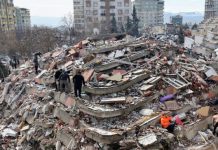مضمون کا ماخذ : prêmios lotofácil
متعلقہ مضامین
-
SBO سپورٹس ایک معتبر بکی پلیٹ فارم
-
Six-member Afghan delegation arrives in Pakistan for talks
-
Unidentified miscreants blow up bridge in Bolan
-
PTI woos JI to join march on Islamabad
-
فلائٹ کنٹرول الیکٹرانک تفریح سرکاری ویب سائٹ
-
Green Pepper Entertainment Official App تفریح کا بہترین ذریعہ
-
ڈریگن لیجنڈ آفیشل ڈاؤن لوڈ کی مکمل گائیڈ
-
مسالیدار ایوارڈز آفیشل گیم آفیشل ویب سائٹ کی تفصیلات اور اہمیت
-
بی ایس پی کارڈ گیم انٹرٹینمنٹ کا سرکاری داخلہ اور تفصیلات
-
بی ایس پی کارڈ گیم انٹرٹینمنٹ کا سرکاری داخلہ اور تفصیلات
-
لکی کاؤ اور دیانت دار تفریحی لنکس کی اہمیت
-
AG آن لائن بیٹنگ پلیٹ فارم کی خصوصیات اور فوائد












